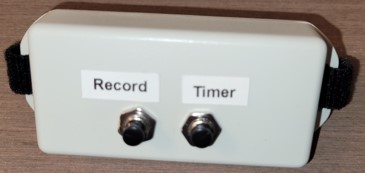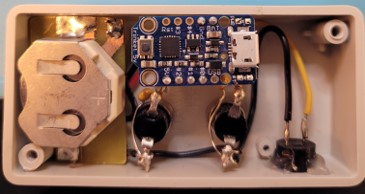WIMTACH develops a novel Garden Timer to make gardening easier


A retired engineer, for Shah Nawaz Husain, gardening and tending to his rose garden was not just a hobby, but a passion. After years of meticulously nurturing his garden, he developed systems to prevent issues encountered from over watering his plants, and his communication with other gardeners helped him to understand that this was a pervasive issue for others. He found that if he didn’t calculate the correct amount of water to deliver to his plants, his plants would deteriorate. “You can kill a plant by two ways, too little water and too much water,” he said. “So what the gardeners do in order to see how much water they are giving, they count in their head while they are watering.” This challenge inspired Husain to develop the idea for a garden timer, designed to specifically help gardeners to manage a consistent delivery of water to plants. “I thought why not make it into a product which could be as a separate timer or maybe incorporated into the watering nozzle itself,” he said.
When Husain set out to develop this technology, he relied on the WIMTACH research team, noting that since a previous collaboration with WIMTACH was successful, he felt confident that this partnership would yield similar results. The WIMTACH research team developed a novel garden timer that enables users to measure time as a proxy for water volume using a fixed volume flow rate. The timer includes sound cues to notify users of when it has been activated or deactivated for ease of use.
Student Researcher, Lakshmi Gopi, assisted the WIMTACH research team in the development of the firmware for the garden timer. This project collaboration was a cornerstone project for Lakshmi as she was able to learn about how to create a Bill of Materials for a project for the first time, learn how to choose a vendor for a project, how to register level programming, and the importance of optimizing power consumption to achieve maximum battery life. She was also able to develop her knowledge of new microcontrollers with good form factors. “I was able to learn more about register level programming like interrupt service routines … power optimization is the most important thing I learned from [the] Project,” she said. She was also encouraged to explore different ideas throughout the project and gain personalized electronics training which, ultimately, helped her to develop transferrable skills for other WIMTACH project collaborations. “Even though we have learned basic electronics in different courses this project made some of the concepts clear to me,” she said. Husain was quite impressed with her perceptive ideas, noting that he found her contributions to be invaluable. “[She] was very very good,” he said. “Lakshmi was very keen and very enthusiastic, willing to work.”
Overall, Husain was pleased with the results of the project collaboration and the process of developing his vision. He hopes to take this product to commercialization with garden nozzle manufacturers and is currently pursuing connections with companies in the gardening industry. Husain is emphatic about recommending WIMTACH to other entrepreneurs as a result of the successful collaboration. “Yes,” he said. “The two experiences I have … I have a very good, positive impression of the [WIMTACH] team.”
For further information, please send press inquiries to ptyagi@centennialcollege.ca


0